 The Growing Power of GMP+ in the Feed Industry
08. 17. 2018
#Feed industry
The Growing Power of GMP+ in the Feed Industry
08. 17. 2018
#Feed industry

An increasing number of feed manufacturers, livestock farmers and feed additive suppliers are feeling the impact of the Good Management Practice certification process on the feed industry. In a world of increasing globalisation, online trading, and deals being struck without personal contact, the need for a system of certification that helps ensure honesty, trustworthiness, and decent code of conduct is clear.

It is therefore no surprise to learn that the use of GMP+ certification is growing. As the feed industry journal All About Feed, reported in August 2018, “In 2017, 17,166 in 80 countries worldwide were GMP+ Feed Safety Assurance (FSA) certified. This constitutes an increase of 1,148 (+7%) compared to 2016.”
Interstingly, while GMP+ certification in the feed industry remains solid in Western Europe, it is the growth in certification in other regions that is making the difference for trading feed and feed raw materials.
As the Managing Director of GMP+ International and lecturer at the University of Teesside in England Johan Den Hartog, notes in the preface to the recently released publication of GMP certification figures for 2017, “We are proud of the continuous growth of our GMP+ certification scheme. We see encouraging developments in Central & Eastern Europe, the Middle East and Asia. The numbers may not yet be impressive in the Middle East, but because of its global import of feed ingredients, the impact of an increase in GMP+ certified companies in that region could pay big dividends.”.
The facts behind the need for feed industry wide certification is evident and is something that is relevant to all players in the feed supply chain. As Den Hartog observed in his recently published study, entitled ‘Feed for Food’. Here he highlights the main points covered by GMP certification of animal feed industry supplier, including:
- Food safety has a high priority worldwide.
- The animal feed industry, including the ingredient suppliers, is part of the food chain and responsible for the safety of its products.
- Demonstrable and transparent quality assurance is a ‘licence to produce’.
- HACCP (Hazard Analysis and Critical Control Points) has been integrated into the certification as a proactive approach to link the feed chain to the food chain.
- Quality control of raw materials is a mutual concern for suppliers and the animal feed industry.
- Trade and industry are assuming their responsibility for product safety.
But the power of GMP+ certification does not stop at these points. Instead it is expanding its reach into the fight against fraud by combating the growing number of dishonest feed raw material suppliers trading in sub-standard, stolen, poor quality, feed ingredients.
The impact of fraud in the feed industry should not be underestimated, as the industry journal All About Feed reports, “Feed fraud doesn’t just affect the company committing fraud, but also its suppliers and clients. And if the media jumps on it, public trust in the feed sector will take a dive as well. Research has shown that once a direct supplier has become a victim of feed fraud, the chance that your own business will be affected by it, increases significantly (Van Ruth, Huisman, Luning: Trends in Food Science & Technology, 67, 2017). This can result in huge financial losses: a fraud incident may cost a company anywhere from 2% to 15% of his annual turnover (Consumer Product Fraud and Deterrence, Grocery Manufacturers Association, 2010).”
Fortunately, feed supplier fraud is another problem potentially avoided by trading with GMP certified suppliers. As GMP has established an Early Warning System that alerts members when a batch of suspicious, stolen, or infected feed ingredients are attempted to be sold.
As a holder of GMP+B3 certification, AG CHEMI GROUP is a trusted member of the animal feed industry supply chain. It has been certified as meeting the standards necessary for the safe and responsible trade, collection, storage, and shipping of animal feed stuffs.

Legislation such as the GMP standard is vital for livestock and poultry farmers. Without a quality certification system, the feed industry would be open to abuse by rogue manufacturers and quick-for-profit feed suppliers. By being granted certification, AG CHEMI GROUP has established itself as a trusted feed and feed additive supplier, whose business model is based on the foundation of long-term partnerships and the provision of quality and safe animal feed products.
As the GMP website notes, “In these warnings – participants receive a message by e-mail – the product involved (generic name), the undesirable substance(s) and value(s) detected are specified, as well as the country of origin. Details of the company involved are never published. Even when a situation is under control, GMP+ International can still decide to publish the warning. This allows participating companies to learn from the mistakes, so that similar cases can be prevented in the future.”
Given the growing prevalence of fraud in the feed industry, the ever-stricter health inspections by government bodies, and the increasing number of health scares over food and farming in the media then it is no wonder that the GMP+ certification process is gaining traction.
The feed industry desperately needs more open trading, more honesty about feed ingredients and improved quality. GMP+ helps provide a level of confidence across the supply chain that over time will spread to farmers, the public, and legislative bodies. Without GMP+ certification little can be trusted upon.
Which raises the question; would you do business with a feed raw material supplier that wasn’t GMP+ certified?
You can read more about the importance of GMP certification in the animal feed industry on the AG CHEMI GROUP blog page.
Or learn more about AG CHEMI GROUP’s range of feed additives, including feed grade monocalcium phosphates, in the catalogue.
Photo credit: AllAboutFeed, AGCHEMIGROUP, JoyStudioDesign, AMNutrition, & Jaxstorm